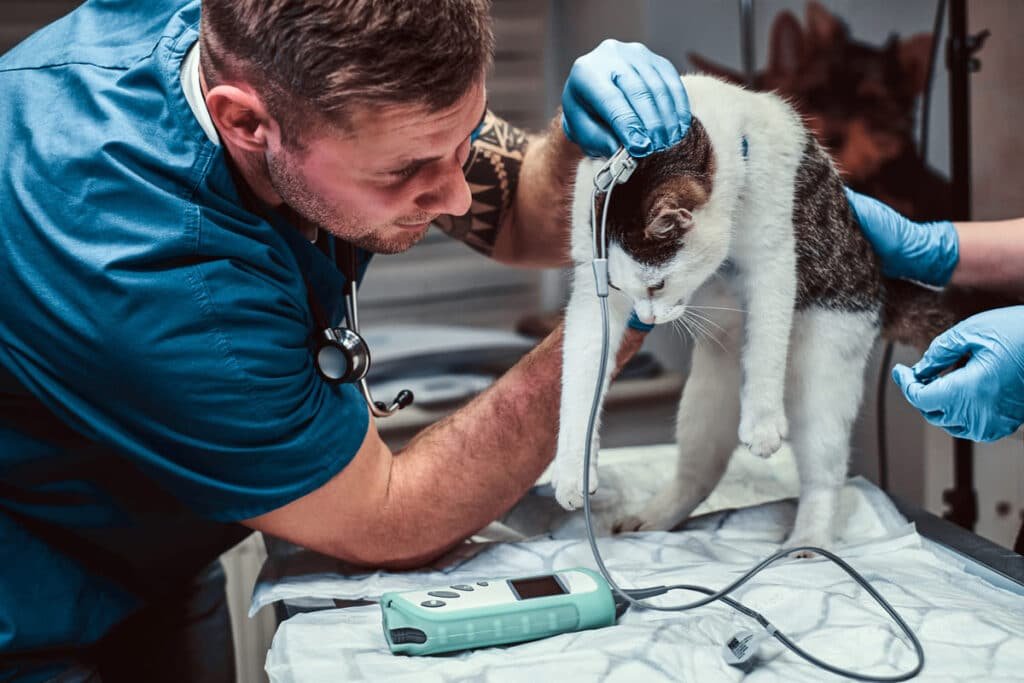Veterinary excessive charges complaint NJ

The Complexity of the Veterinarian-Pet Owner Relationship: Excessive Charges and Complaints in New Jersey
The relationship between veterinarians and pet owners has become increasingly complex, leading to a notable rise in complaints related to veterinary practices.
Concerns about excessive charges and treatment errors are growing, sparking interest in how to handle such complaints, particularly in New Jersey.
This article explores the issue of excessive veterinary charges in NJ, how to file a complaint, and the importance of proper documentation in veterinary care.
Excessive charges complaints and the Role of Veterinary Records: A Double-Edged Sword
Veterinary records are crucial for your pet's care, but inadequate documentation can lead to serious issues. Consider the case of Dr. Jake Peregrine, where poor record-keeping resulted in negligence accusations.
Pet owners need to understand that these records are not just essential for monitoring their pet's health but also serve as evidence in legal disputes.
For instance, if a veterinarian fails to document a crucial diagnosis or prescribed treatment, it can lead to liability issues and mistrust. Maintaining thorough records of every visit, treatment, and recommendation is critical.
Veterinarians who ensure proper documentation can avoid misunderstandings and potential legal troubles. Conversely, gaps in communication or records can exacerbate conflicts, damaging the trust between vets and pet owners.
Excessive Veterinary Charges: What Are They?
Excessive veterinary charges refer to cases where pet owners believe they have been unfairly overcharged for services. These situations often arise from a lack of transparency or surprise charges for unrequested services.
For example, a pet owner may bring their dog in for a routine check-up and be charged for additional tests they didn’t approve. In another scenario, a misunderstanding about the cost of a surgical procedure could lead to disputes. Transparency from veterinary clinics about their fees is essential to avoid such conflicts.
New Jersey regulations provide clear guidelines for veterinary charges, but pet owners must remain vigilant and review invoices carefully.
A clear understanding of the associated costs before services are rendered can help prevent frustration and complaints.
How to File a Complaint About Excessive Veterinary Charges in NJ
Filing a complaint can seem daunting, but it's a right every pet owner has. Here’s a step-by-step guide:

- Gather Documentation: Collect all related documents, including invoices, receipts, and any correspondence with the clinic. These records strengthen your case. Example: If you’re disputing an unapproved $500 charge for lab tests, include the invoice, clinic estimates, and email exchanges.
- Contact the Clinic: Attempt to resolve the issue directly with the clinic before escalating the matter. Many misunderstandings can be resolved through open communication.
- Submit a Complaint Form: New Jersey’s veterinary regulatory board provides forms for filing formal complaints. Ensure all required fields are completed and attach supporting documents.
- Follow Up: Once submitted, monitor your complaint’s progress. Investigations may take time, so patience and persistence are key.
Drafting a Complaint Letter About Veterinary Charges
When drafting a complaint letter, precision and professionalism are critical. Here’s what to include:
- Your Contact Information: Name, address, and phone number.
- Clinic Details: Include the name of the clinic and veterinarian involved.
- Clear Complaint Description: Detail the charges you find excessive and provide a rationale.
- Supporting Documents: Attach copies of all relevant records.
Maintain a respectful tone in your letter. A professional approach increases the likelihood of a favorable resolution.
Can You Dispute a Vet Bill in NJ?
Yes, disputing a vet bill in NJ is possible and within your rights. If direct discussions with the clinic fail, you can escalate the matter to the regulatory board.
Act promptly, as time limits may apply for submitting complaints.
Proactively asking for itemized invoices and clarifications on fees before services can prevent disputes. Open communication between pet owners and veterinarians is crucial to maintaining trust.
Common Complaints Against Veterinarians
Several recurring issues lead to complaints, including:
- Excessive Charges: Unapproved services or inflated prices often cause dissatisfaction. Example: A cat owner is billed for a $1,200 surgery when they were quoted $800, leading to confusion and frustration.
- Communication Gaps: Misunderstandings about procedures or costs create mistrust. Example: A veterinarian prescribes a medication but doesn’t explain its purpose, leaving the owner unsure about its necessity.
- Treatment Errors: Mistakes in diagnosis or procedures can have serious consequences.
- Poor Documentation: Inadequate record-keeping can undermine the credibility of a clinic.
Veterinarians must prioritize transparency, accuracy, and effective communication to minimize these issues.
How Communication Affects Veterinary Care
Communication is the foundation of effective veterinary care. When clinics fail to clearly explain procedures or costs, it can lead to strained relationships and negative outcomes.
Pet owners should feel comfortable asking questions and voicing concerns. A lack of dialogue can result in misunderstandings, such as believing a procedure was unnecessary or being surprised by hidden fees.
Veterinarians can foster trust by providing detailed explanations, using visual aids or brochures, and offering cost estimates upfront. By actively engaging with clients, vets can reduce complaints and improve overall satisfaction.
The relationship between veterinarians and pet owners thrives on transparency, trust, and effective communication. Excessive veterinary charges and poor documentation can strain this bond, leading to dissatisfaction and formal complaints. Pet owners must remain proactive, ask questions, and document all interactions, while veterinarians should focus on clarity and accountability.
In New Jersey, regulatory frameworks exist to protect both parties, but fostering a collaborative approach can prevent conflicts altogether. As the complexities of pet care grow, prioritizing open communication and ethical practices will be key to maintaining a positive relationship between veterinarians and pet owners.

Leave Your Complaint…

Related Posts